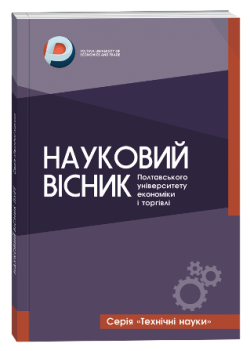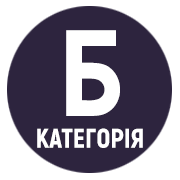ADVANTAGES AND DISADVANTAGES OF USING ARTIFICIAL INTELLIGENCE IN SCIENTIFIC RESEARCH
Abstract
The purpose of this study is to identify the advantages and disadvantages of using artificial intelligence (AI) in scientific research. Methodology of research. The article employs the method of analysis and synthesis of contemporary scientific publications that address the implementation of AI in scientific activities. A literature review was conducted, along with an analysis of AI tools for automated search and analysis of scientific information, and the ethical aspects of AI usage were considered. Findings. The essence of the concept of "artificial intelligence" was defined. Public interest in the topic of AI and the use of GPT Chat were analyzed. It was determined that over the past five years, public interest in AI has remained high, significantly increasing with the public release of GPT Chat in March 2023. In Ukraine and some other countries, there is a predominance of interest in GPT compared to AI, with a percentage ratio of 63% to 37%. Ukraine leads the ranking in the number of interested individuals, indicating a significant interest in new technologies such as GPT Chat. The study showed that AI significantly enhances the efficiency of scientific research, allowing for the analysis of large data volumes, increasing the accuracy and reliability of results, and optimizing the research process. At the same time, significant drawbacks were identified, such as the risks of erroneous decisions, ethical and integrity issues, data obsolescence, and limited contextual understanding. A characterization of AI services and platforms for automated search and analysis of scientific information was provided, including Semantic Scholar, Google Scholar, IBM Watson Discovery, ArXiv, ResearchGate, Microsoft Academic, Meta, Lens.org, and Scite. Practical value. To optimize the use of AI in scientific research, it is necessary to implement ethical standards and procedures to ensure transparency and accountability. It is recommended to develop AI-related skills among researchers, increase awareness of potential biases and errors, and ensure regular data updates to maintain their relevance.
References
2. Chaudhry, M., & Kazim, E. (2022). Artificial Intelligence in Education: a high-level academic and industry note. Original Research, 2 (Pp. 157–165).
3. Duggal, N. Advantages and Disadvantages of Artificial Intelligence. 2024. Retrieved from https://www.simplilearn.com/advantages-and-disadvantages-of-artificial-intelligence-article
4. EU. EU Artificial Intelligence Act. Retrieved from https://artificialintelligenceact.eu/
5. Strilets, V., Frolov, S., Datsenko, V., Tymoshenko, O., & Yatsko, M. (2022). State support for the digitalization of SMEs in European countries. Problems and Perspectives in Management, 20 (4) (Рр. 290–305). doi:10.21511/ppm.20(4).2022.22
6. Svab, I., Klemenc-Ketis, Z., & Zupanic, S. (2023). New challenges in scientific publications: referencing, artificial intelligence and Chat. Zdr Varst, 62(3) (Рр. 109–112).
7. UNESCO. Artificial intelligence in education. UNESCO. 2019. Retrieved from https://en.unesco.org/artificialintelligence/education.
8. Use of artificial intelligence when writing scientific papers. Retrieved from https://spapers.eu/uk/blog/usingartificial-intelligence-while-writing-a-scientific-papers [in Ukrainian].
9. Dmytriieva, O. I., & Yefymenko, O. V. (2023). Osoblyvosti vprovadzhennia shtuchnoho intelektu v suchasnu vyshchu osvitu [Peculiarities of introduction of artificial intelligence in modern higher education]. Tekhnolohii dobrochesnoho vykorystannia shtuchnoho intelektu u sferi osvity ta nauky– Technologies of honest use of artificial intelligence in the field of education and science : materials of the All-Ukrainian scientific and pedagogical professional development, July 31 – September 10, Odesa: "Helvetyka" Publishing House, 2023. 276 p. P. 89–92.
10. Inquiries from Google users on the concepts of GPT and AI. Retrieved from https://trends.google.com.ua/trends/explore?date=today%205-y&q=gpt,AI
11. Strilets, V. Iu., Materynko, V. O., & Sokil, A. A. (2023). Poserednytski mekhanizmy rekonfihuratsii mozhlyvostei tsyfrovykh platform dlia stvorennia innovatsiinykh biznes-modelei MSP [Intermediary mechanisms for reconfiguring the capabilities of digital platforms to create innovative business models for SMEs]. Infrastruktura rynku – Market infrastructure, 73. (Pp. 101–106). Retrieved from http://www.market-infr.od.ua/journals/2023/73_2023/20.pdf [in Ukrainian].
12. Artificial intelligence in the field of scientific publishing. AkademProstir. 2024. Retrieved from https://www.akademprostir.com/l/shtuchnij-intelekt-u-naukovij-publikatsijnij-sferi/ [in Ukrainian].


